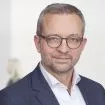- within Energy and Natural Resources topic(s)
- in Europe
- within Energy and Natural Resources, Transport and Insolvency/Bankruptcy/Re-Structuring topic(s)
The National Energy Crisis Staff, NEKST, was established in connection with the policy platform for the present government in December 2022. In February 2024 the NEKST working group "More sun and wind on land" launched a report with 27 recommendations which are all individually or together to ensure a change of pace in terms of the expansion of renewable energy.
About the working group and the report
The objective of the NEKST working group is to identify barriers which are currently impeding renewable energy on land, and submit and implement specific initiatives which may break down such barriers in the process.
The group's work has resulted in a report with 27 recommendations categorised according to three overall issues: Local support, land use and faster processes. The principal points under the three categories are described in the following.
Local support
It is stated in the report states that local support is essential to ensure a faster process for the construction of RES-plants and to avoid local opposition leading to local authorities abandoning projects. In order to accommodate this, the working group proposes, among other things, to seek dialogue between the parties and the local community at an earlier stage.
Land use
It is further stated in the report that localisation of appropriate areas is another key feature in the expansion of RES-plants. If the RES-production on land is to be quadrupled before 2030, the working group estimates a requirement of approx. 26,000 hectares of solar power cells on land and approx. 28,500 hectares for wind turbines. This area amounts to 2.1% of agriculture's area in Denmark and 1.3% of the total area of Denmark. Accordingly, the working group believes that appropriate areas exist in Denmark, and that the real challenge is prudent and efficient land use where RES-plants and other activities can interact.
Faster regulatory processes
The working group also points out in the report that regulatory processes should delay RES-projects to a lesser extent, which means that as many barriers as possible should be removed.
The next step
The next step for the working group will be a meeting with the Minister to evaluate the status of the working group's recommendations. We will be following developments closely.
The content of this article is intended to provide a general guide to the subject matter. Specialist advice should be sought about your specific circumstances.



